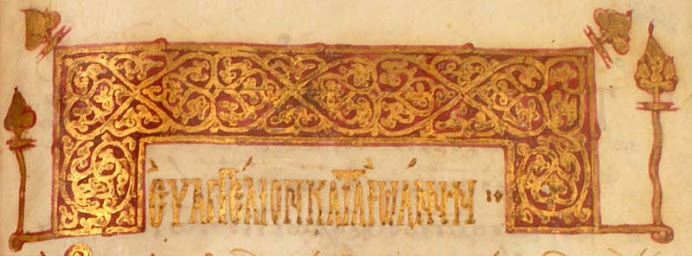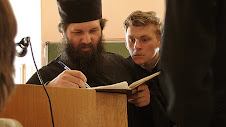The body is pure. Therefore we must not only estrange from it unnatural cravings and strengthen it in those things which are natural to it; in other words, we must return it to its natural state. Beside this, the body should assist the soul as its constant companion. Therefore, besides returning it to its natural state, we must turn the very satisfaction of its basic needs to the benefit of the soul and spirit. In satisfying these needs, some sort of exercise should be assigned to each bodily function as another means of healing our fleshiness, thus benefiting us spiritually as well.
Here are the prescribed rules:
1) For the senses: guard the senses altogether, especially the hearing and vision (nervous system). 2) Guarding the tongue. 3) Abstinence and fasting (the stomach). 4) Moderate sleep and vigilance (the stomach). 5) Physical purity (the stomach).
For the body in general. Wear out (muscular), constrain (nervous system) and emaciate yourself (the stomach). It is obvious how through these ascetic practices the body little-by-little returns to its natural state, becomes alive and strong (muscular), bright and pure (nervous system), light and free. It becomes a most capable instrument of our spirit and a worthy temple of the Holy Spirit. (p. 243)
These are harsh and, for many of us, unwelcome words; we aren't likely to find them in the average self-help book. But bear in mind that, as St Theophan clearly states, and as I've written
earlier in reference to the life of St Anthony the Great, the ascetic life is not bodily
mortification so much as it is bodily
revitalization or
revivification. But this involves real work and real discomfort. We trust, however, that the reward will be worth the effort, to say the very least; and if we do it truly out of love, it will involve hardly any real effot at all, as God will aid and assist us by His Divine Grace.
 St Theophan the Recluse, in his invaluable handbook to the spiritual life, The Path to Salvation, writes with great clarity about the nature and practice of bodily exercises in the ascetic life:
St Theophan the Recluse, in his invaluable handbook to the spiritual life, The Path to Salvation, writes with great clarity about the nature and practice of bodily exercises in the ascetic life:








3 comments:
I have been Orthodox for 4 years and have yet to keep the fast throughout all of Lent. In the past, I have not really looked forward to Lent. I actually looked forward to it this year and the excitement seemed to carry me through the first couple of days, despite the hunger and the longer prayers. The last couple of days have seemed more arduous (both with fasting and with prayer). Still, after 6 days of very little food and lots of prayer, I feel lighter (I don't know how else to put it) and more aware of God being everywhere present and filling all things. By God’s grace, I will keep praying and fasting.
Juliana
Another benefit of fasting -- and one not often cited by the ascetic Fathers, for some odd reason -- is that it leads to beautiful sleep. I dare say I never sleep better than during the first week of Lent, when there's little to nothing in the tummy.
I once heard a good description of how to know when one has eaten in a way keeping with the spirit of fasting: if one can get up from the table and immediately turn to prayer, then you're fasting indeed; if you're so full that you feel weighed down then, no matter how fasting the food was that you just consumed, you've broken the spirit of fasting.
May God help you in your struggles!
Thank you! And thank you for the description about eating in a way keeping with the spirit of fasting.
It's very interesting that you mentioned the affect of fasting on sleep. My husband and I were just discussing how well I have slept this week. I usually have trouble sleeping (even sometimes resulting in taking a sleep-aid medication). I haven't done that at all this past week.
Glory to God for all things!
Juliana
Post a Comment